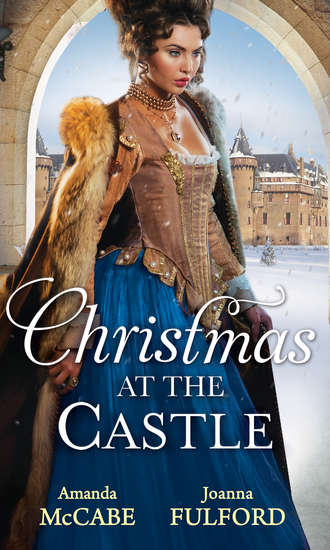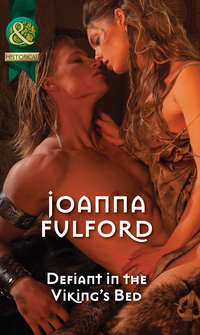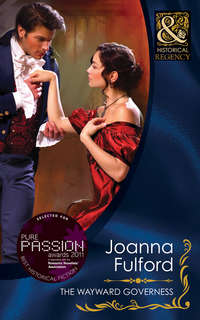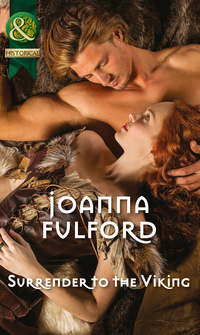
Полная версия
Christmas At The Castle: Tarnished Rose of the Court / The Laird's Captive Wife
“I’m not as good at pretending as I once was,” she said, just as calmly.
“Just as you like. You don’t have to cower there under the bedclothes. I’m not a starving wolf, set to devour you as soon as you move.”
“Nay, the wolf is sated for now. And I do not cower,” she snapped. Then softer, as if she spoke to herself, “Not any more.”
Her words made him look at her damaged shoulder and think of the fear that had flashed in her eyes when he’d pinned her to the bed. The fear that had only eased when he’d rolled her on top of him. He longed to go to her, to snatch her up in his arms and hold her against him until she knew only him. Only remembered him.
But he had not been able to protect her from her villain of a husband. He had to protect her now.
He made himself stay where he was, his fists braced to the table as he watched her reach for her crumpled chemise on the floor and pull it over her head. He had the briefest glimpse of her bare breasts before she was covered again.
She walked to the table where he stood and reached for the pitcher of ale set there. She didn’t look at him as she poured out a gobletful and sipped at it. He tried not to stare hungrily at the soft movement of her throat as she swallowed, at her slender fingers wrapped around the goblet. Tried not to remember what she had done with them.
“What are those?” she asked, gesturing with the goblet at the papers.
“Messages from Marcus,” he said, forcing his attention back to the documents. “It seems there is trouble.”
Celia gave a little snort of a laugh and took a deep sip of the ale. “Now, why am I not surprised to hear that? Is our presence required?”
“Soon, I think. When you are strong enough to travel. I don’t want you to become ill again.”
She shrugged and turned away to refill her goblet. “It was only a chill. I am perfectly able to travel. Today, if needs be.”
“Celia …” That fierce protectiveness rose up in him again.
“I said I can travel! I want to go,” she snapped.
The words she left unspoken hung in the air, and John knew what she meant—she did not want to stay there with him. It was what she should feel, and yet he was angry. He wanted to change her mind.
“I should send for a litter for you,” he said, pushing himself back from the table. From her.
“That would take too long, and you know it,” she said. “I can ride.”
“Nay, Celia.”
She spun back to face him, her eyes sparkling. “Do you doubt my strength after earlier this morning?”
He crossed his arms over his chest, his jaw set in a hard line as they stared at each other. The very air seemed to crackle around them.
She turned away first, her shoulders slumped. “Just see to the horses,” she said, her voice small and quiet. “I will get dressed.”
He did not want to leave her—not like this, with so much still between them. So much that could not be said. But her very stillness held him away. She looked as if she would crack if he touched her. He could bide his time. He had learned patience in the last few years.
“Aye,” he said, and strode towards the door. He let it close softly behind him even as every instinct in him urged him to drive his fist into the wall.
Or to grab her, slam his mouth down on hers as he stripped away her chemise and repeated what they had done earlier.
Celia stabbed the pins into her upswept hair as she stared at her reflection in the window. Even in the fractured wavy glass she looked pale and gaunt, ghost-like. Haunted.
She twisted her hair harder, glad of the sting on her scalp as it distracted her and brought her back to her task. She hadn’t been herself earlier this morning. Now she had to find herself again.
She glanced over her shoulder at the rumpled empty bed. Earlier, in those tangled sheets, she had been wild and free. Everything she had held so tightly in check for so long had flown free. All because of John. His touch, his kiss—they had always unleashed something in her she didn’t understand. And earlier the pleasure of that wildness had been unfathomable.
Now she wanted to scream with the anger and sadness of losing it all over again. When she’d woken up from delicious dreams and seen the distant, wary look in his eyes, the cool lack of expression on his face, she’d longed to fly at him. Slap his face, scratch at his golden skin until he reacted to her. Showed her something, anything, that told her he had been affected by their lovemaking. That, despite everything, he wanted her still.
She’d managed to hold herself still, to match his distance with a chill of her own. She had become quite good at hiding her thoughts and emotions. Sometimes not reacting, keeping herself apart, had been all that saved her.
And now, in the cold daylight, she saw that he was right to stay away. Perhaps their swiving had been inevitable—something that still lay between them from the past. Their bodies still knew each other, no matter what their minds said.
But it was the past. This was the present, and a gulf wider than the English Channel lay between them.
She finished pinning up her hair and turned from her reflection to put the final touches to her dress. Some of her clothes had been left for her, and she put on her warmest quilted petticoat and wool skirt, a high-necked black wool and velvet doublet. She wedged her feet into her riding boots and reached for her hat and gloves. She was ready to ride into any battle now.
She hurried out of the chamber where so much had happened and down the stairs, as if she could flee John and what he had made her feel there at the same time. But he waited for her in the cold, empty foyer.
He was also dressed to ride, in brown leather and wool, his hair brushed back from his face. She let her eyes linger on those strands, thinking of how they’d felt as they slid through her fingers, as she’d used them to pull him down to her.
She turned sharply away to jerk on her gloves.
“You still wear mourning,” he said, his voice flat.
“I can’t afford new Court clothes,” she answered. “My black was the last thing I could get from my husband’s cheese-paring family. I couldn’t let it go to waste. Are we ready to depart, then?”
John frowned as if he wanted to say something else, but he merely nodded. He swung open the door and a blast of cold wind curled around her.
“Let us go, then,” he said.
Chapter Eleven
Celia reined in her horse at the crest of the hill to catch her breath after the hard gallop. She tossed a smile over her shoulder at John as he drew up beside her. Her uncertainties of before had been lost in the exhilaration of the ride, the sheer joy of still being alive.
“I do believe I was the victor,” she said.
“So you were,” he answered with a grin. “This time.”
“I will outrun you again, John Brandon. And again and again.”
“I wouldn’t be so confident if I were you, my lady. Perhaps I allowed you to win out of gallantry.”
Celia laughed. “Certainly you did not. The great Sir John, victor in all his endeavours, bested by a woman? You would never want word of that to spread. It would quite ruin your reputation.”
“I don’t see anyone here to witness my loss, do you? I would say my good name at Court is safe.”
Celia glanced around as he gestured with his riding crop at the landscape below. She still smiled as she surveyed the frozen fields, bisected by grey stone walls. It felt good to laugh and tease with John again, to feel at least a bit at ease in his presence.
In the days since they’d left the hunting lodge they had ridden in silence, saying only the little that was necessary as they’d travelled hard over the mostly deserted roads. At night they’d stopped at quiet inns to gulp down a hasty meal and fall into bed—alone. She noticed he always slept at a careful distance from her, close enough to protect her in a strange place, but far enough that there was no contact at all.
He would take her hand to help her from the saddle, would ask her how she fared, make sure she had enough wine or blankets, but that was all.
Celia was happy to be quiet with him, to keep her distance. She thought too much about him as it was. The bare, wintry landscape they passed offered little distraction from memories of what had happened between them in that bed. The feel of his hands on her bare skin, his mouth and tongue on her, his hoarse moans and curses as they rode each other. She saw the look in his eyes as he watched her. It was all still there, vivid and painful—sweet in her mind.
She glanced at him from the corner of her eye. He was absently patting his horse’s neck as he surveyed the land around them, a small frown on his lips. He looked as if his own thoughts were a hundred miles away, and against her better judgement she found she desperately wanted to know what they were. What he kept hidden deep inside himself.
But she feared that if she caught a glimpse of John, the real John, she would have to share the real Celia in return. That she could not do.
“So this is Scotland,” she said. “It looks scarcely different from England.”
Or rather scarcely different from the England they had seen in the last few days. Harsh, austere, forbidding northern England, so different from the softness of southern England, the noise and commotion of London. The place seemed like a separate world from all she had ever really known. It was silent and grey-green all around.
Yet she liked it. The very harshness seemed beautiful to her, seemed to respond to something hard and cold and wild inside her.
“Aye, this is Scotland,” John said. “What do you think of it so far?”
Celia looked around her again and drew in a deep breath. She even liked the air here, clean and diamond-clear, smelling of frost, green, and the faint tang of a peat fire.
“I like it very much,” she said. “I like the loneliness of it.”
John gave her a strange look, and she thought she saw a flash of surprise in his eyes. “I doubt there will be any time for loneliness once we reach Edinburgh.”
“I dare say there won’t. If Queen Mary’s Court is anything like her cousin’s, there won’t be a moment of silence.”
“They say she is trying to bring elements of her French life to the Scottish Court,” John said. “Dancing, cards, masquerades, hunts. I doubt that pleases Knox and his Puritan cohorts. They thought never to see their French Catholic queen again.”
That must certainly be true. Surely they’d thought that with Mary in France Scotland was theirs to run as they wanted. The country’s religion, alliances and culture in their hands. Until suddenly she’d returned, with her own ways of doing things.
“Has there been trouble?” Celia asked quietly.
“Nothing serious as yet. Mary has proved strangely popular with her subjects since she returned from Paris—except for the men who thought they ruled Scotland and dictated its religion and allies. Threats, stones thrown at courtiers’ carriages, ugly pamphlets railing against female rulers. But there will be more to come. That seems inevitable.”
“Is that what Lord Marcus’s message said?”
John shifted in his saddle. “Knox and Queen Elizabeth aren’t the only ones who want to control Queen Mary. She still has her French attendants with her, who have their own ideas of what she should do.”
“Not to mention the Spanish,” Celia murmured. It was so nice to be able to talk to John like this again, to share her ideas and hear his, to know what he thought of their strange situation. “To have a Catholic ally right on Elizabeth’s northern border could only be a boon to them. Is the marriage of Queen Mary to Don Carlos still a possibility?”
“A distant one, perhaps, or Mary would have snapped it up by now. She wouldn’t dally with the likes of Darnley if she had the Spanish heir.”
“And one of these parties is not causing trouble in Edinburgh.”
John suddenly gave her a rakish grin. “Celia, where a crown is at stake there is always trouble. We must make more of it for our opponents than they do for us.”
Was that how he lived his life, then? Made trouble for others before they could do it to him? Before she could say anything to him, he tugged at his reins and took off down the hill.
“We need to find a place to stop for the night,” he called to her, his words caught on the wind.
Celia dashed after him. The cold wind kept them from saying any more as they galloped over the fields and found the road again. The narrow track was muddy and rutted, clotted with fallen branches, but they made good time. Dusk was falling when they finally stopped in front of a pair of gates that stood ajar.
They were of an elaborate design of twisted wrought iron, surmounted by a family crest, but they were being eaten away by rust. Beyond the gates she glimpsed an overgrown trail winding away between towering trees.
John stared up at the crest with an unreadable look on his face.
“Are we stopping here?” Celia asked quietly.
He was silent for a long moment. So long she thought he might not answer. That he had forgotten she was even there.
Finally he said, “Why not? It’s growing dark, and it’s still a fair ride into the village.”
He led his horse through the gap in the gates and Celia followed. As they made their way slowly down the path she felt as if she had stepped into a troubadour’s song of enchanted forests and ghosts. It seemed even quieter here than on the hill, perfectly silent, as if even the wind dared not brush through the bare, skeletal trees.
She could see that once this had been a grand park, laid out for pleasure rides and pretty vistas, but now it was all a tangle. She glimpsed a half-frozen lake in the distance, with a pale stone folly crumbling on the shore. The gathering evening mist only made it more mysterious.
Celia shivered.
“Are you cold?” John asked. “We will soon be there, and we can build a fire.”
“I’m quite well,” she said, even as that chill danced up her spine again.
They turned at a twist in the path, and Celia saw a house rise up before them. It was a surprisingly fine manor of faded red brick and dark wood latticework that had once been painted. The small windows stared down, blank and dark.
Above the door was another chipped stone crest.
“How did you know this place was here?” Celia asked as John swung down from his horse and came round to help her dismount. “Have you been here before?”
“Nay, but I heard about it as a child,” he said. When he lowered her to her feet he didn’t immediately release her, as he had been doing, but kept his arm around her waist. He held her with him as he studied the house with narrowed eyes. “This was my mother’s family’s house,” he said.
“Your mother?” Celia gasped in surprise. Then she remembered John’s mother had been Scottish—one of the reasons Queen Elizabeth had given for sending him here. But John had never spoken of her before. “Where are they, then?”
“All dead. They died even before I was born. After my mother was sent to England to serve one of Henry’s many queens. Since my parents died when I was six, it is mine now.” He kicked at a fallen chunk of brick on the ground. “For all the good it does me.”
Celia blinked as she looked up at him. She had seen John angry, cold, passionate, but never like this. So very distant. It made her shiver again, and his arm tightened around her.
“Come, you should be inside,” he said.
Celia nodded. She didn’t want to go inside. This place seemed haunted in truth. But it was dark now, and there was nowhere else to go.
John pushed the door open with his foot and led her inside.
She had thought the hunting lodge was quiet and desolate, but it was nothing to this place. Everything in the foyer was so still she could hear the wind whistling outside, creeping through the walls. The floor was warped and cracked, the balustrade of the staircase broken. From somewhere up in the ceiling she thought she could hear the rustle of birds.
She rubbed at her arms through her sleeves and followed John into what had once been the great hall. There was a large fireplace at one end, and a few broken bits of furniture littered on the floor. He found an almost intact stool and set it by the empty fireplace.
“Sit down and rest,” he said. “I’ll try to make a fire so we can stay somewhat comfortable tonight. We should catch up to the others by tomorrow.”
Tomorrow. Their time together was ending so very soon. The reality of their lives, their two separate lives, grew closer with every moment. She should be eager to leave John behind, to move towards the future. Work for Queen Elizabeth; a new marriage. The past gone.
But instead she only felt colder. Hollow inside. She had been closer to John than she had ever been to another person, no matter how deceptive those feelings had been in the end. Yet she craved it again—that warmth she sometimes glimpsed in his eyes.
She had put him out of her life once. Surely she could do it again?
She wrapped her arms around her waist as she watched him use the remnants of the wooden furniture to build a fire. The flames were slow to grow at first, until they grabbed onto the dry, brittle wood and crackled to life. Celia slowly felt herself grow warmer, steadier, calmer. They were here together now. That had to be enough.
Once the fire was well lit, John brought in their saddlebags and made a quick meal of hard biscuits, dried beef and wine. It was full dark outside when quiet fell between them, broken only by the snap of the fire and the wind outside.
Celia saw the way he rolled his head between his shoulders and rubbed wearily at his neck. Something softened deep inside of her, and before she knew what she was doing she reached out to touch his arm. She couldn’t stop herself. His back tightened, and he gave her a wary glance over his shoulder.
“Lean against me for a while,” she said softly. “Let me rub your shoulders. You used to like it when I did that after a day’s hunting.”
For a moment she thought he would refuse. Would stride from the room and leave her alone. But then he leaned against her legs and let his head fall back to her knees, heavy through her skirts.
She sat on the stool while he was on the floor, so her hands floated naturally to his shoulders. His doublet was unfastened, and she eased it down his arms. He wrapped his arms around her calves as she kneaded at his hard shoulder muscles. His skin was warm and smooth through his shirt.
She pressed her thumbs into the tense knots of his back. “This must have been a grand house once,” she said as she felt him slowly relax against her.
“My mother always said it was, when she told me stories when I was a child.” John’s voice sounded deep and distant, as if her touch carried him far away. “There were grand banquets here. Especially at Christmas. Dancing and music, minstrels’ tales here by this very fire. Queen Marie of Guise was even invited here one year.”
Celia studied the hall around them, seeing it not as it was now but the way it had been. Could be. The floors polished and gleaming, tapestries on the walls, delicacies piled high on silver plates atop carved sideboards. Musicians playing a pavane in the gallery above as the brightly dressed guests danced.
“It’s a shame the house isn’t ready to receive Queen Marie’s daughter, then,” Celia said.
“Who knows if my mother’s tales were true?” said John as he leaned back into her hands. “This place might have been a ruin for decades before she was born. She just liked to make Scotland sound like a romantic dream. Z’wounds, Celia, but that feels good! I should keep you close to me after tournaments. You would banish any wound with a touch.”
Celia smiled, but she didn’t want to dwell on how good his words felt. How much she would love to see him ride in a tournament, her favour tied to his lance. “You remember your mother, then?” she said.
Конец ознакомительного фрагмента.
Текст предоставлен ООО «ЛитРес».
Прочитайте эту книгу целиком, купив полную легальную версию на ЛитРес.
Безопасно оплатить книгу можно банковской картой Visa, MasterCard, Maestro, со счета мобильного телефона, с платежного терминала, в салоне МТС или Связной, через PayPal, WebMoney, Яндекс.Деньги, QIWI Кошелек, бонусными картами или другим удобным Вам способом.






